At the beginning of 2024, Xinhua Community Design Center received a funding programme from UNDP GEF. The programme support zero-waste actions to encourage the sustainability transition of Xinhua neighbourhood. As such, a self-organisation of local residents loving planting, the Garden Action Group, organised a Zero Waste Community Garden Festival at the community design centre.
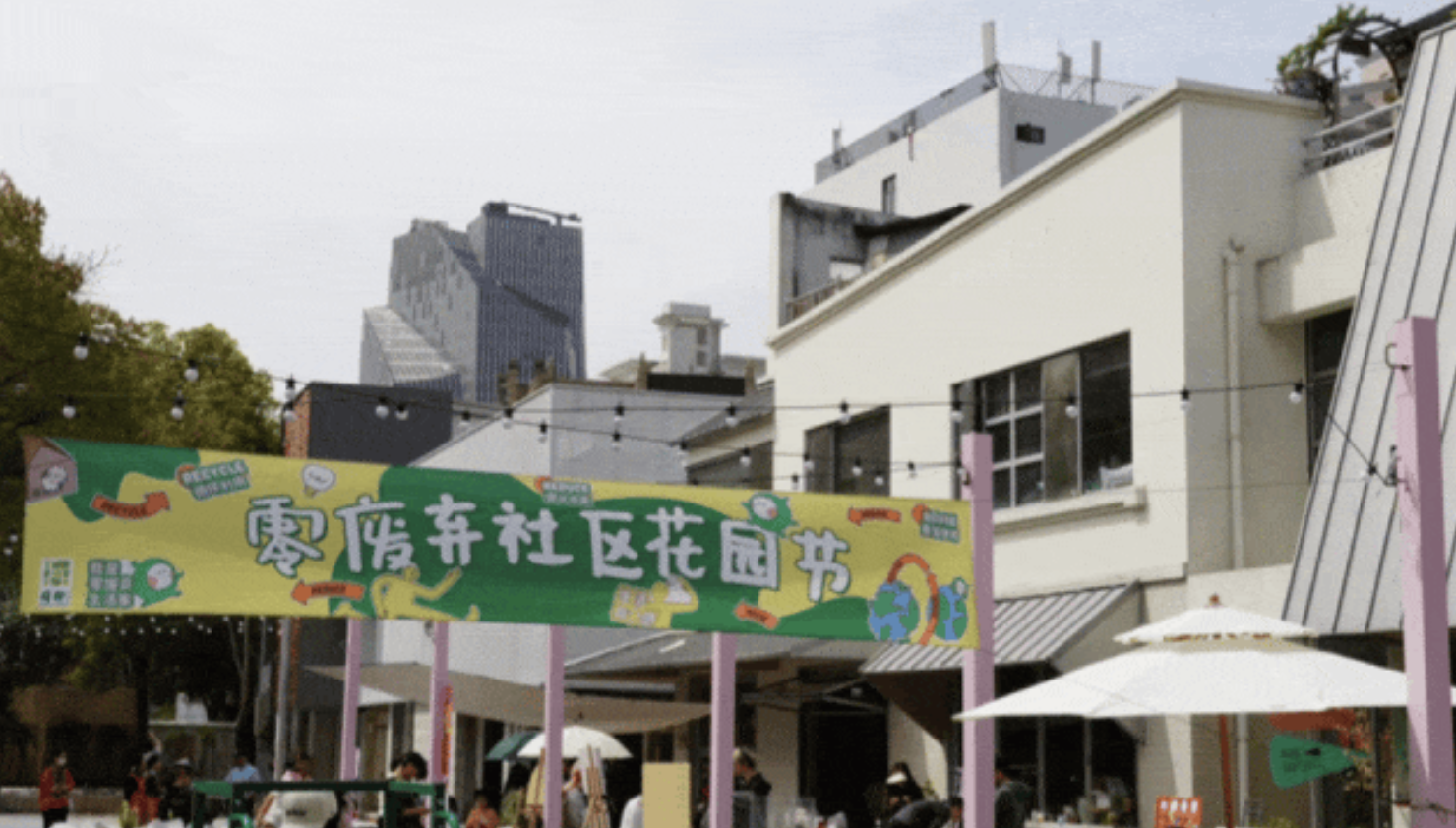
The festival had a package of activities to promote zero waste actions among residents.
- Spring Planting. Local residents learned the knowledge of planting and planted tomatoes, cucumbers, chillies, sunflowers and mints in the community garden.
- Zero Waste Lunch. GAO Ya, the operator of the community kitchen, used vegetables from the community garden to cook a healthy lunch for citizens. The lunch amount was decided by people’s reservations to avoid food wastage. Finally, all the peels and trimmings of food were made into compost returning to the garden.
- Spring Tour: An exploration tour was held for citizens to explore the community garden, local stores and to collect materials for compost.
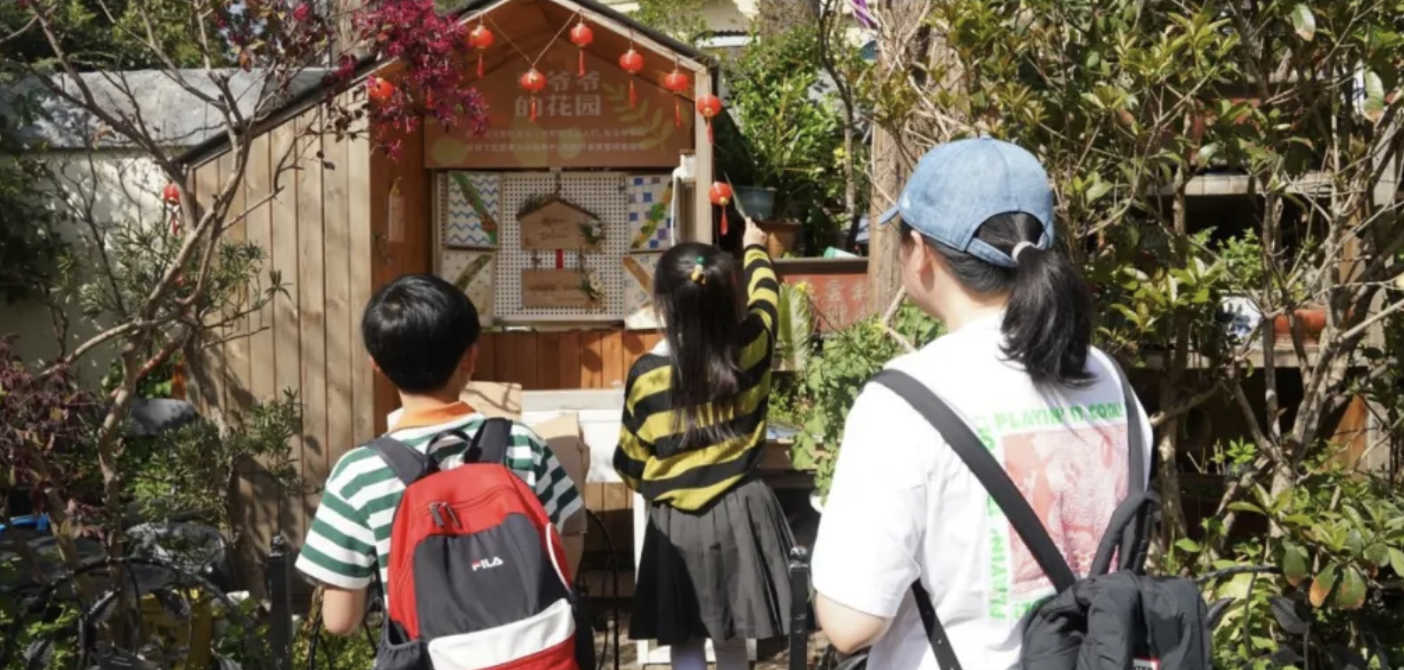
- Compost: Citizens collected wastes from the community kitchen and fallen leaves and branches from the community garden and made all of them to compost with the guidance of specialists.
- Lectures: Specialists from environmental NGOs were invited to give lectures about how to use kitchen wastes and accessible materials to compost at home.
- Fair: several sustainable-themed stalls and local stores were invited to a fair. Forage Plains Commune reused second hand courier packaging to make jigsaws for citizens to draw out possible daily zero-waste solutions. 1M CAP brought organic tomatoes which use enzyme fertiliser. Citizens can bring their kitchen wastes to exchange for tomato sprouts to bring home to grow their own organic tomatoes. Orange Tailor Store provided free cutting and mending for citizens' clothes. Urban Ecology Lab, the initiative set up by the T Factor Shanghai team in Xinhua neighbourhood, showcased many gadgets designed to interact with nature in new ways and held several workshops for citizens, including unfresh fruit upcycling fermentation, denim trimmings redesign.
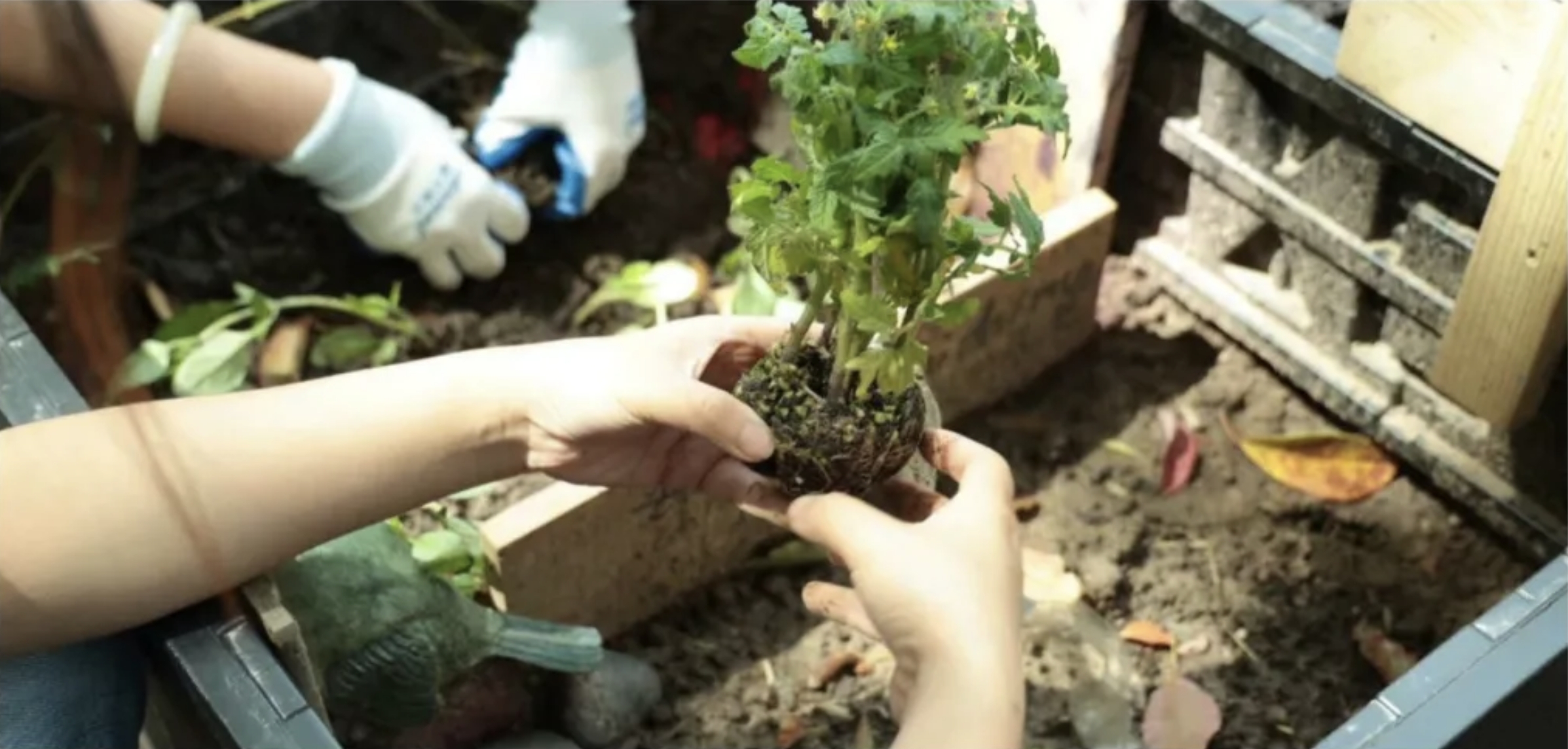
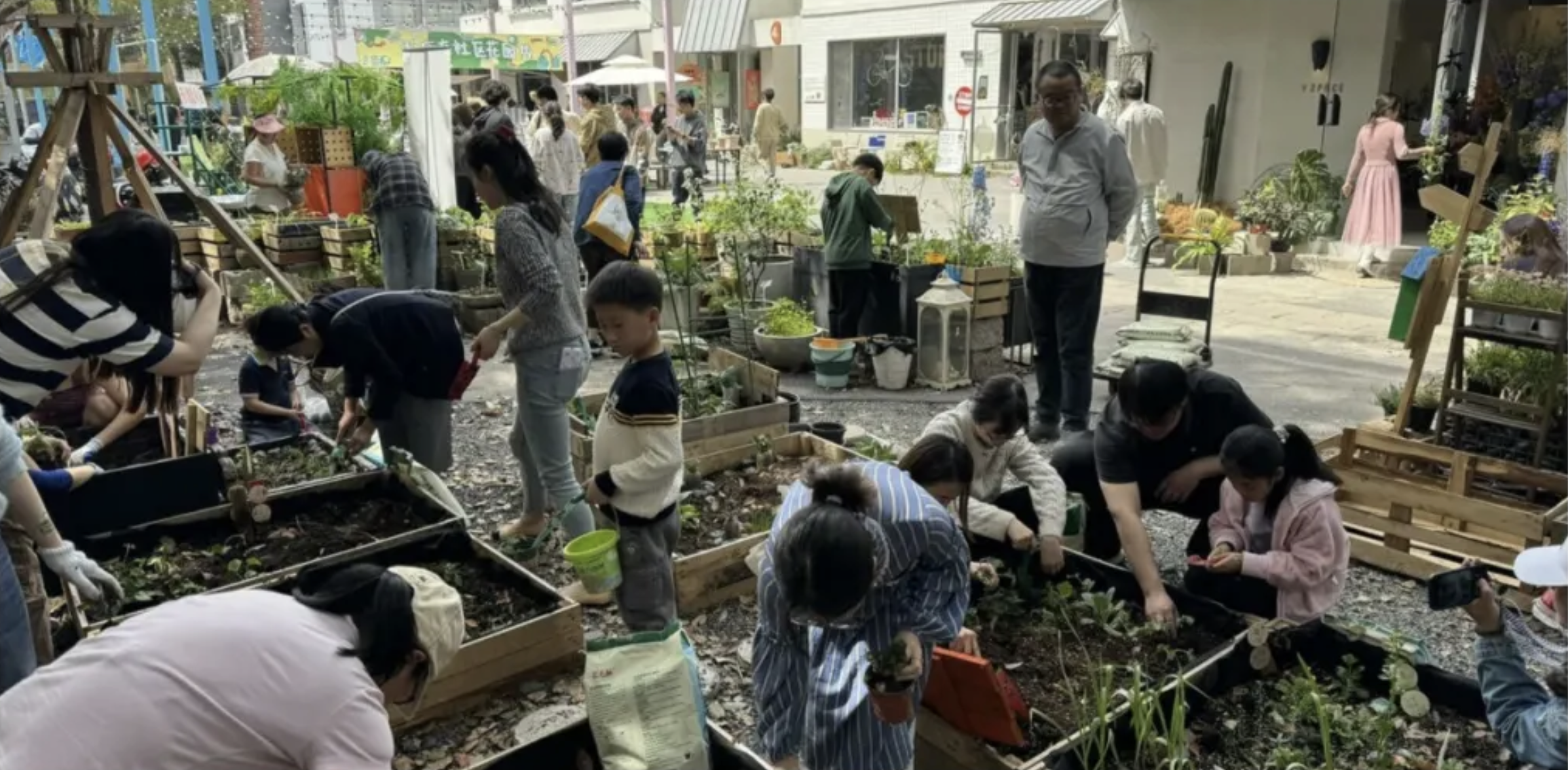
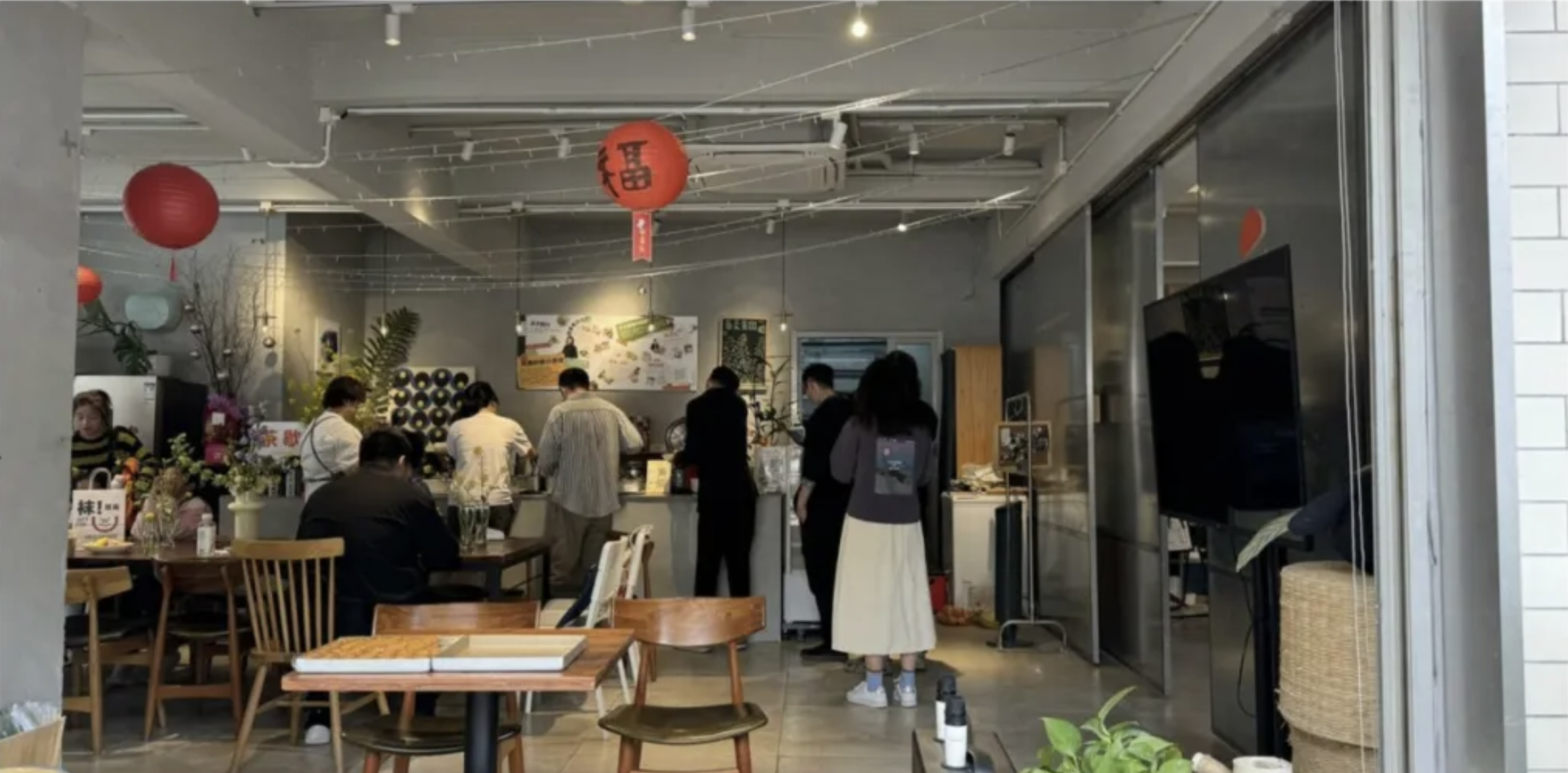
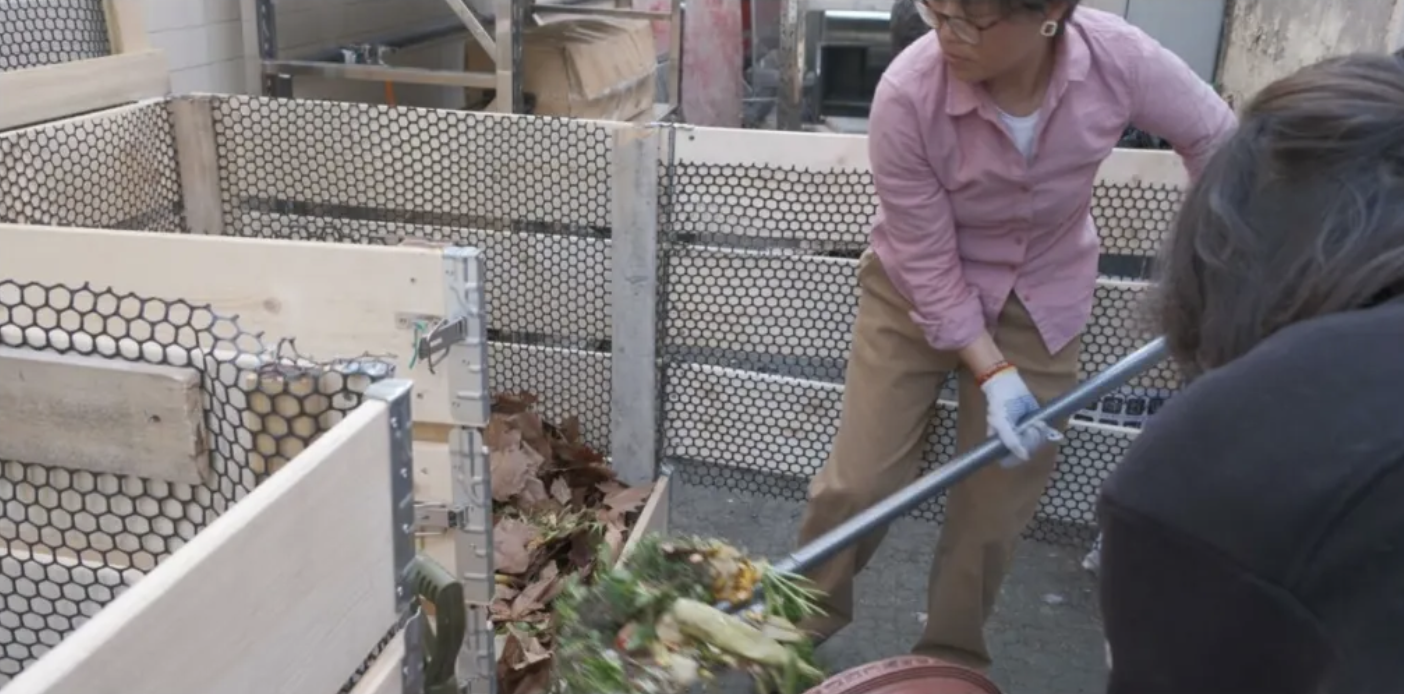
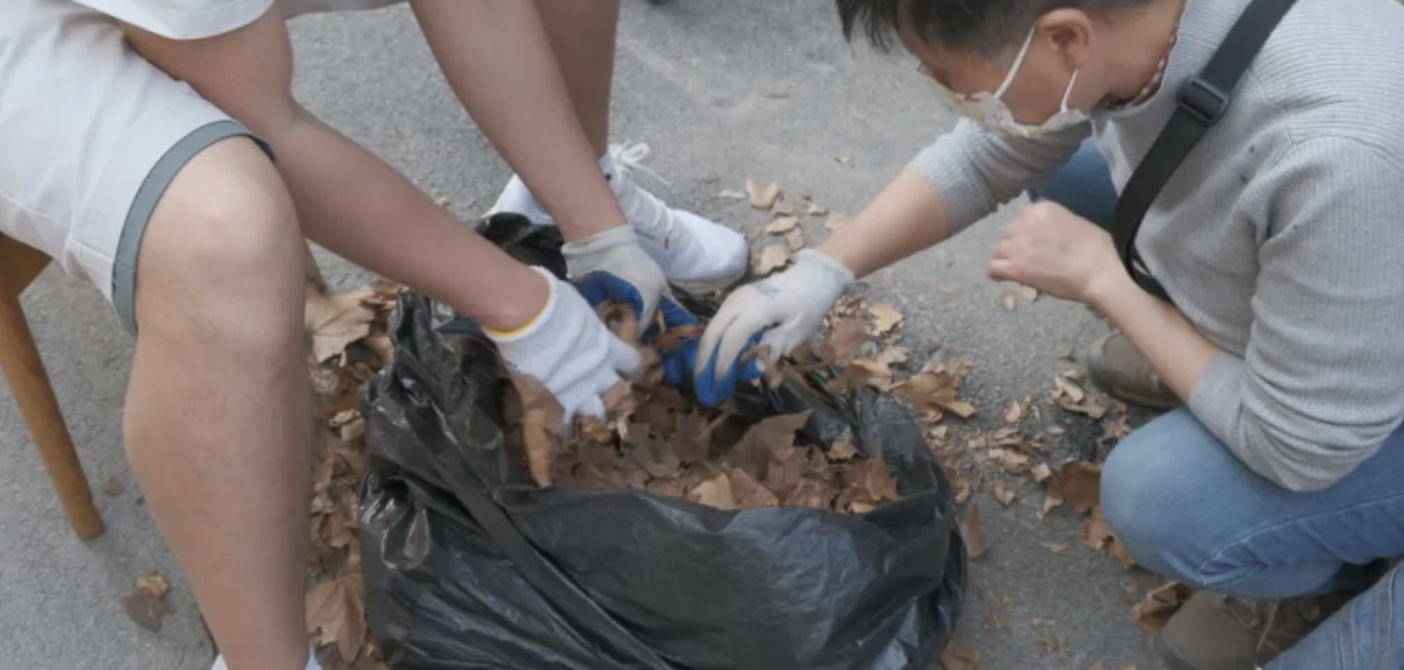
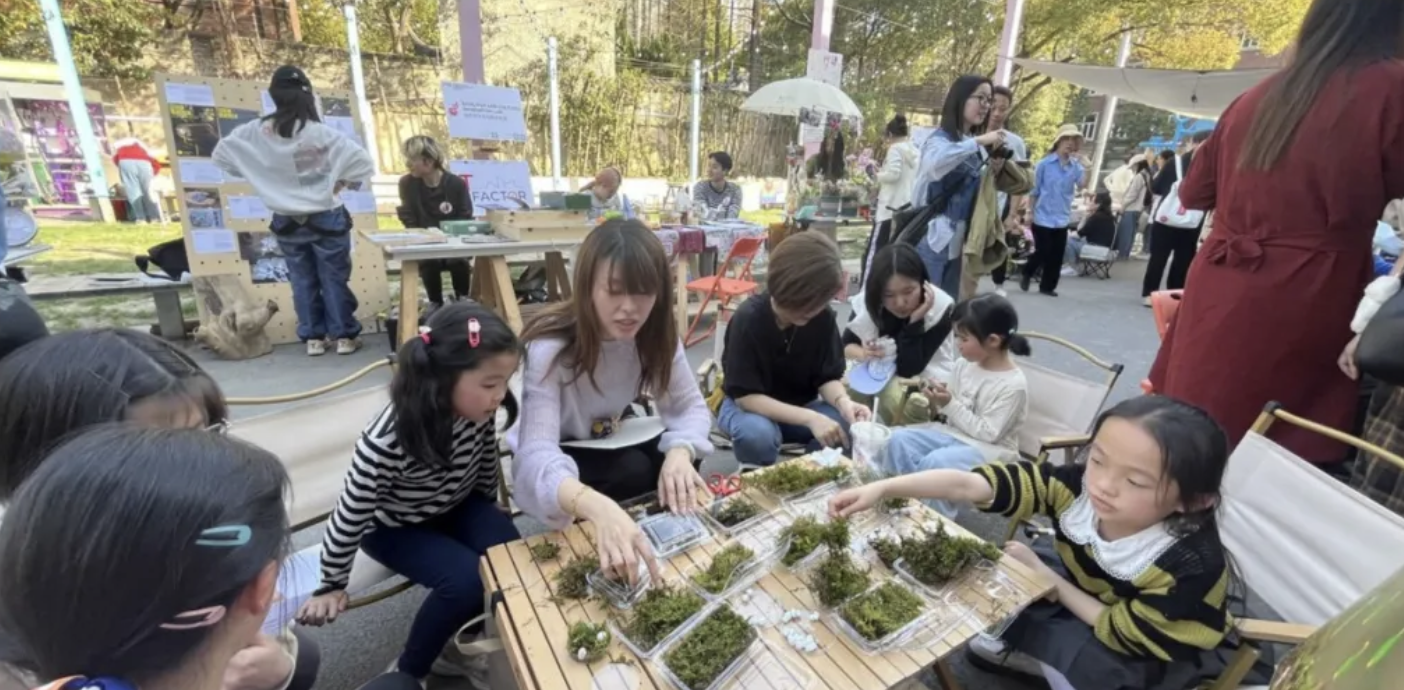
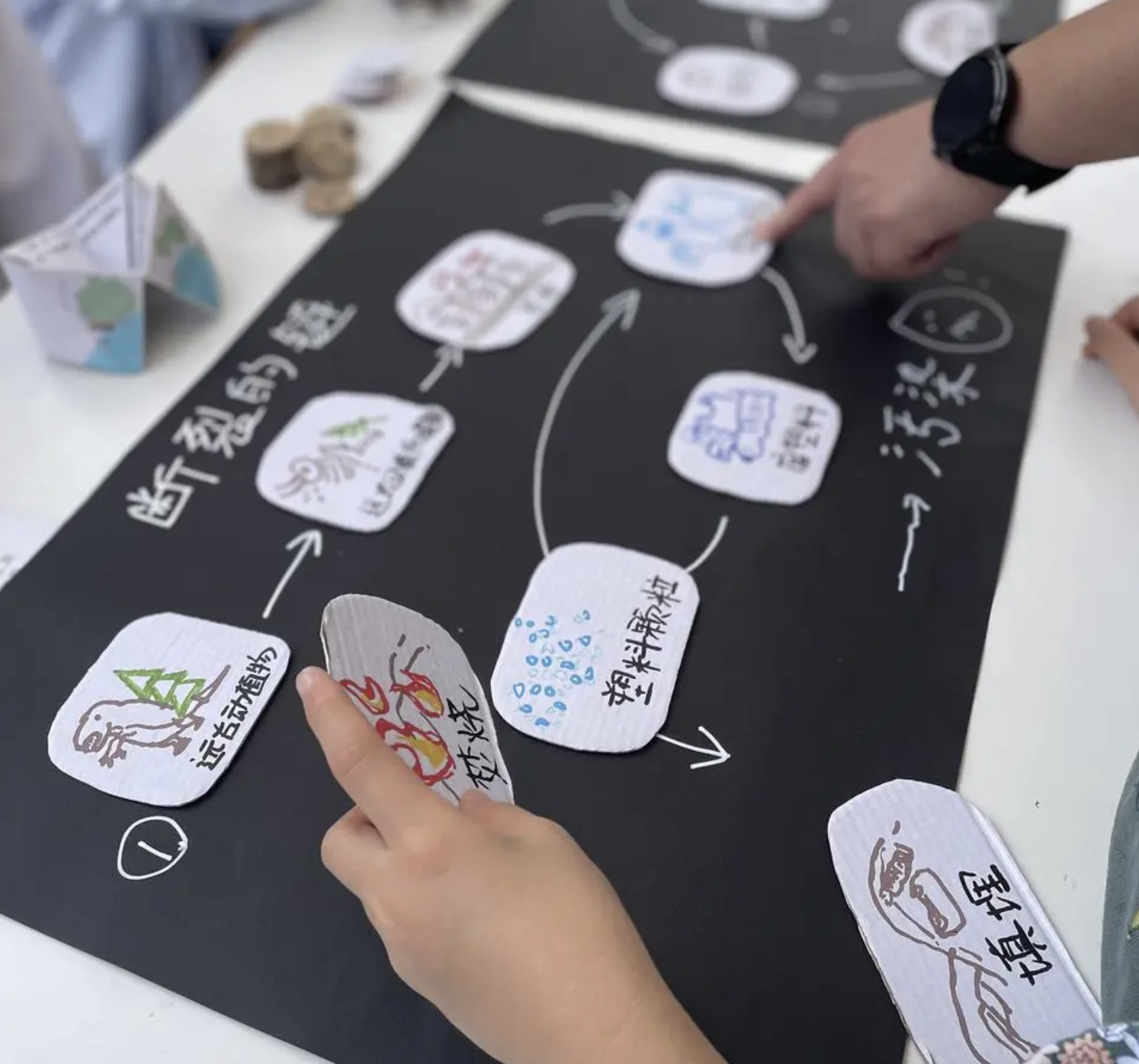
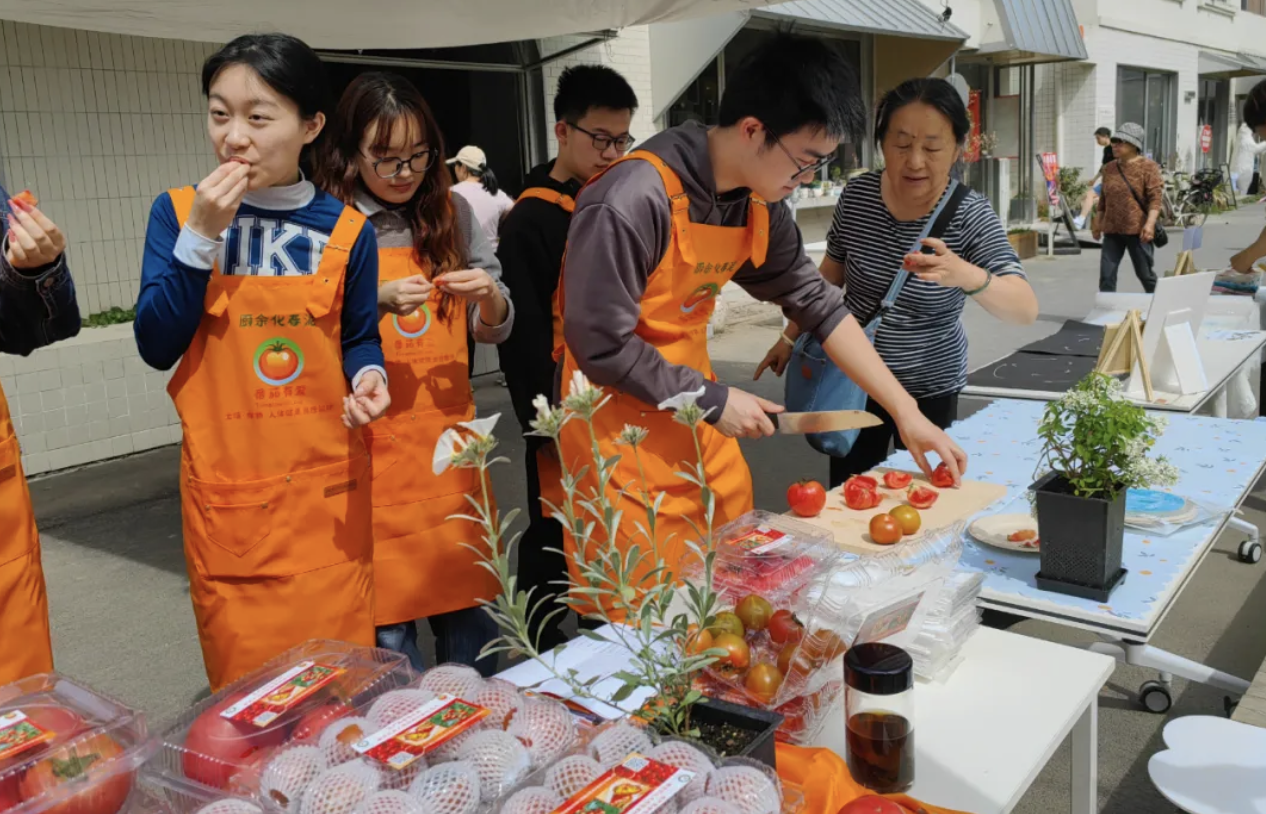
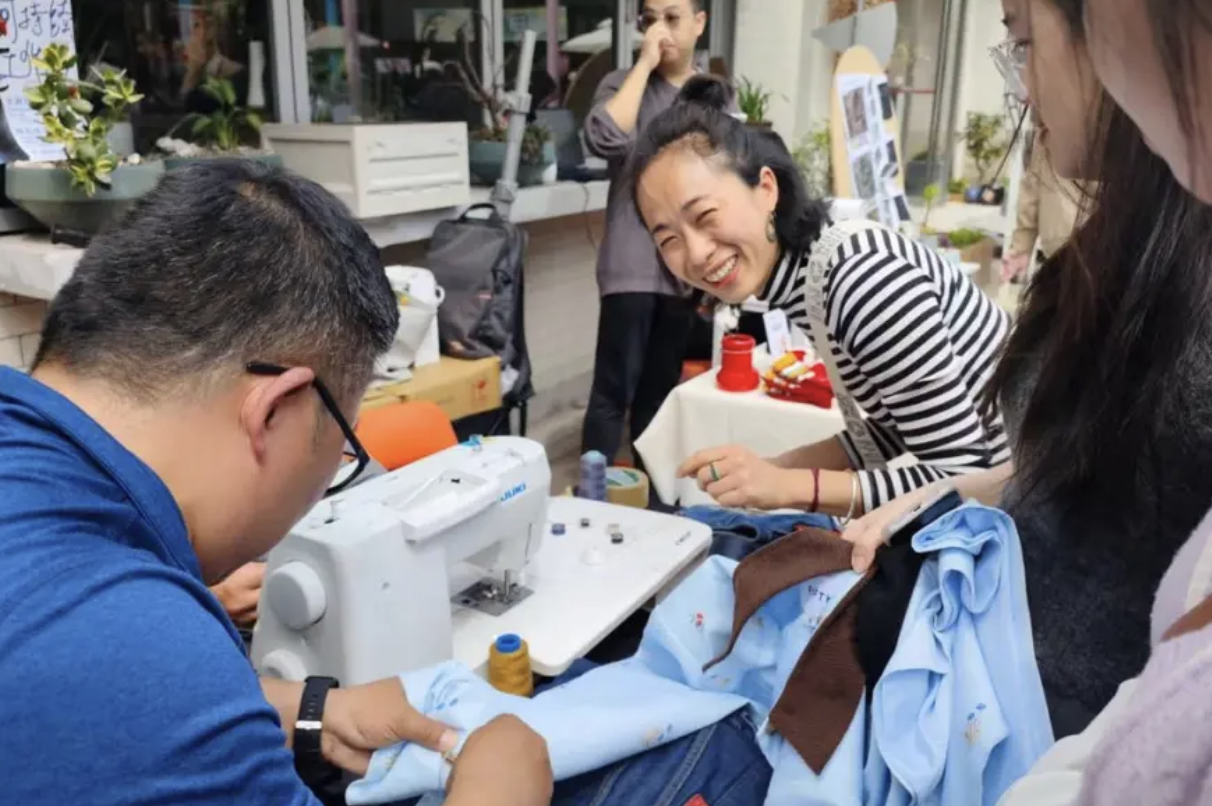
The whole festival followed the zero waste principle. No disposable cups or tableware were provided at the event site; materials used for the event were locally sourced or recyclable materials were utilised, lowering the environmental impact of the event setup; and all the stall setup materials were recycled from previous events and taken away by the owners after the event, with no excess garbage being generated.
Compared with the usual large-scale events, the amount of dry garbage, recyclable garbage and wet garbage generated by this festival were reduced by more than 60%. All wet garbage was used for community composting on that day, and all recyclables were collected.
Authors: LU Wentao, Francesca VALSECCHI, LIN Zijie, SummerLi
- Do-It-Together Eco-practices
- Co-creative and community-led meanwhile
Tags: Zero-waste, Community festival, Event
Circular Business Compass
Define a basic business model for circular economy initiatives